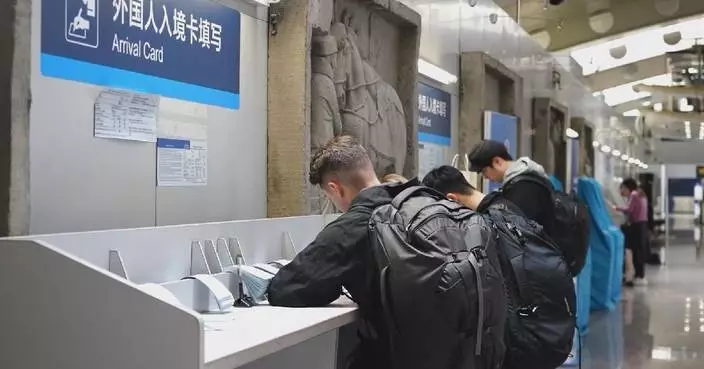As concerns mount over the impact of new U.S. tariffs, a leading economist warns the policy could destabilize domestic industries and send shockwaves through the global economy.
Amid widespread opposition, U.S. President Donald Trump on Wednesday signed an executive order on the so-called "reciprocal tariffs," imposing a 10-percent "minimum baseline tariff" and higher rates on certain trading partners. Trump claimed that other trading partners impose non-monetary barriers on the United States, including practices like currency manipulation and trade barriers.
Countries and regions facing steep tariff hikes include China at 34 percent, the European Union at 20 percent, Vietnam at 46 percent, Japan at 24 percent, India at 26 percent, South Korea at 25 percent, Thailand at 36 percent, Switzerland at 31 percent, Indonesia at 32 percent, Malaysia at 24 percent, and Cambodia at 49 percent.
According to Youssef Ait Benasser, an assistant professor of economics at Bard College, efforts to enhance U.S. manufacturing through tariffs are unlikely to succeed in a globalized economy, making industrial self-sufficiency nearly impossible.
"It is definitely the intention of the government to support local outputs and local employment. We have a lot of uncertainty in understanding how businesses are going to respond to this at this point. There are sectors we know that are going to be more affected by these tariffs. Manufacturing is likely going to be highly impacted," he said.
The effectiveness of tariffs in protecting U.S. jobs remains uncertain, as globalized supply chains complicate efforts to bring production back home. While some companies have announced plans to relocate, the long-term impact is unclear and could weaken American competitiveness, according to Benasser.
"I think, while it's harder to comment on the short-run dynamics, long-run dynamics should give us more concern because these tariffs are basically going to work as firewalls that protect U.S. businesses from foreign competition, and this protection from foreign competition may reduce incentives that U.S. firms face to innovate, or to improve their production processes. So in the long run, this may hamper the productivity gains that the U.S. may experience, and job gains that the U.S. may experience. There has been research trying to establish the link of between the tariffs and impacts on inflation, we have some estimates that put the impact at 0.8 percentage points of CPI inflation. So, these are going to have effects on inflation, at least in terms of direct effects," he said.

Economist warns U.S. tariffs could backfire, threatening global trade

















































